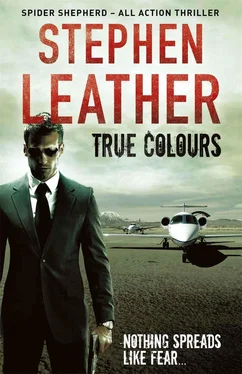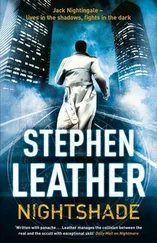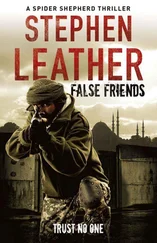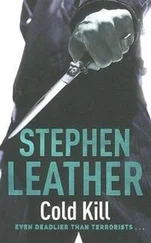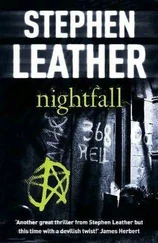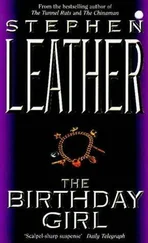Stephen Leather - True Colours
Здесь есть возможность читать онлайн «Stephen Leather - True Colours» весь текст электронной книги совершенно бесплатно (целиком полную версию без сокращений). В некоторых случаях можно слушать аудио, скачать через торрент в формате fb2 и присутствует краткое содержание. Год выпуска: 2013, Издательство: Hodder & Stoughton, Жанр: Триллер, на английском языке. Описание произведения, (предисловие) а так же отзывы посетителей доступны на портале библиотеки ЛибКат.
- Название:True Colours
- Автор:
- Издательство:Hodder & Stoughton
- Жанр:
- Год:2013
- ISBN:нет данных
- Рейтинг книги:5 / 5. Голосов: 1
-
Избранное:Добавить в избранное
- Отзывы:
-
Ваша оценка:
- 100
- 1
- 2
- 3
- 4
- 5
True Colours: краткое содержание, описание и аннотация
Предлагаем к чтению аннотацию, описание, краткое содержание или предисловие (зависит от того, что написал сам автор книги «True Colours»). Если вы не нашли необходимую информацию о книге — напишите в комментариях, мы постараемся отыскать её.
True Colours — читать онлайн бесплатно полную книгу (весь текст) целиком
Ниже представлен текст книги, разбитый по страницам. Система сохранения места последней прочитанной страницы, позволяет с удобством читать онлайн бесплатно книгу «True Colours», без необходимости каждый раз заново искать на чём Вы остановились. Поставьте закладку, и сможете в любой момент перейти на страницу, на которой закончили чтение.
Интервал:
Закладка:
Monotok left the farm for ever that night. He made one other call, on the uncle who had sold him into his slavery. He flattened his uncle as soon as he answered the knock at his door, cut out his tongue so that he could not cry for help, then hamstrung him by severing the tendons behind his ankles so he couldn’t walk. Monotok then slashed him with a knife across his face, torso and arms — enough to weaken him from blood loss but not enough to kill him — and then threw him into the pigsty behind his house. He watched the pigs begin their feast, then moved away through the forest into the night.
Monotok walked through the night, following forest tracks and single-track roads without seeing a single vehicle. He reached a remote station just after dawn, warming himself by the stove in the wooden hut that served as a waiting room and drinking black tea from a samovar watched over by a toothless old babushka, as he waited for the westbound train. He travelled a thousand miles west to Moscow and moved into an abandoned apartment in a dismal Stalinist-era block, where the lifts had not worked in twenty years and the stairs stank of urine and worse. It was one of Moscow’s poorest and most violent districts, but his neighbours, mostly drug addicts, alcoholics and petty criminals, who preyed on each other and on the handful of other inhabitants of the block, too old, too poor or too ill to escape, soon learned to stay out of his way.
For almost two years he lived a semi-feral existence, using his wits and his fists to survive, always in and out of trouble with the law for thefts and assaults. Then he made what could have been a fatal mistake, giving a savage beating to a man who richly deserved it, but who was also the son of a Russian mafia boss. With a price on his head and no other way out, though still aged just sixteen, Monotok lied about his age and enlisted in the army. The minimum age was eighteen but he was tough and powerfully built, and his battered face, marked and scarred in scores of fights, made him look much older than his years.
He joined the Spetsnaz — the Soviet Special Forces, or ‘Special Purposes’ troops, as the Russians themselves described them. Unlike the British SAS, the Spetsnaz were not soldiers first who then became special forces by passing a bruising selection process; raw recruits were inducted straight into the Spetsnaz and did their entire military training with them.
Spetsnaz training was designed to break down recruits and then rebuild them, but they never broke Monotok. He never once failed to do what was asked of him, no matter how gruelling the task. When his instructors ordered him to do a hundred press-ups with a full bergen on his back, he did it. When ordered to run a mile through a forest with a colleague over his shoulders, he gritted his teeth and did it. They made him lie fully clothed in an icy mountain stream for two hours, and he emerged close to death but still smiling. He knew that there was nothing they could do to him that was worse than what he had suffered at the hands of his tormentor.
When fully trained, Monotok and his unit were deployed to a barracks north of Prenzlau, close to the Polish border and a few miles from the Baltic coast. They left there only for training exercises and to go on operations, where Monotok proved himself the fittest, strongest and most ruthlessly effective soldier of his entire unit. He was too much of a loner to be a good team player — none of his comrades liked him or trusted him — but he was a cool and cold-blooded killer, who never showed the slightest trace of emotion, fear or panic, no matter what was thrown at him, and he never failed in the task he was set. His talents were noted by his superiors and he began to be selected for special assignments, assignments that more often than not involved assassinations.
Monotok was a skilled assassin, and he killed without remorse or conscience. He had been trained as a sniper but was as comfortable killing with knives, garrottes and handguns as he was with a rifle. After a dozen kills he was sent with his unit to Chechnya. Russia was tightening its grip on the republic following a terrorist attack on a Moscow cinema by armed Chechen rebels that ended with the death of one hundred and thirty civilians. Monotok was part of an assassination unit tasked with killing a dozen of the rebels who had planned the raid. Within six months of arriving in the republic all were dead. In 2006, Monotok was part of a unit responsible for the targeted bombing of Shamil Basayev, the prime mover in the Chechen Islamic rebel movement, but Basayev was only one of twenty Chechens that he helped kill that year. He had become a relentless killing machine, devoid of all emotion or empathy as he carried out his orders.
It was in 2009 that Monotok saw the picture that took his life down a different path. He was still in Chechnya, but Russia was winding down its anti-terrorist operations there and Monotok was preparing to return to Prenzlau. The picture was in a week-old copy of Komsomolksaya Pravda , the biggest-selling newspaper in Russia. It had started life as the official organ of the Communist Union of Youth but following the break-up of the Soviet Union had become a tabloid with more than three million readers. One of Monotok’s colleagues had returned from leave with the paper in his pocket, and during a break between missions Monotok had flicked through it. He had never been a big reader and rarely watched television. He didn’t care about anything that happened in the outside world, his life revolved around the Spetsnaz and his assignments, he cared for little else. Monotok had recognised the man in the photograph immediately, though the name meant nothing to him. Pyotr Grechko.
The story was about Grechko trying, and failing, to buy Liverpool Football Club. Monotok wasn’t interested in football, or any sport, but he read and reread the story more than a dozen times. Peter Grechko was one of the richest men in the world, the story said, a man who had fought his way up from humble beginnings to head a transport empire that literally spanned the world. But Monotok knew the truth about how Grechko had started on the road to unimaginable wealth, and as he stared at the newspaper he decided that the time had come to get his revenge. He left the Spetsnaz in the winter of 2010. His superiors offered him all sorts of incentives to stay — promotion, money, more leave, foreign travel — but Monotok refused them all. The only thing he cared about was the revenge that was rightfully his.
Monotok went freelance, working for a former Spetsnaz colonel who had joined up with a former KGB assassin to set up a murder-for-hire company. Assassinations were a common way of solving political and business disagreements in post-Soviet Russia and Monotok had an average of one job a week. Clients included the Kremlin, the Mafia and even legitimate businesses, eager to use a professional service that guaranteed to keep the killings at arm’s length. Monotok earned good money, ten times what he earned as a soldier, and he learned quickly. For the Spetsnaz he had been a simple killer, following orders, but as a freelance he learned about electronic surveillance, accessing databases, and gained access to fake documentation that allowed him to move freely around the world under a number of aliases. His hired a tutor to teach him English, and as his fluency increased the company sent him farther afield and Monotok killed in Europe and the United States. When he wasn’t working, Monotok dug up as much information as he could on Pyotr Grechko. And it didn’t take him long to track down three more faces from his past. Oleg Zakharov, Yuri Buryakov and Sasha Czernik. All four had become rich and powerful oligarchs, men who had the sort of wealth that others could only dream of, men for whom the world was a giant playground. But Monotok knew the truth about the four men, he knew that it wasn’t hard work or luck that had brought them their wealth. It had been cold-blooded murder, and for that they had to pay. Now Zakharov, Buryakov and Czernik were dead, and soon Grechko would join them. Then maybe the nightmares would finally stay away and he could sleep soundly for the first time since he was nine years old.
Читать дальшеИнтервал:
Закладка:
Похожие книги на «True Colours»
Представляем Вашему вниманию похожие книги на «True Colours» списком для выбора. Мы отобрали схожую по названию и смыслу литературу в надежде предоставить читателям больше вариантов отыскать новые, интересные, ещё непрочитанные произведения.
Обсуждение, отзывы о книге «True Colours» и просто собственные мнения читателей. Оставьте ваши комментарии, напишите, что Вы думаете о произведении, его смысле или главных героях. Укажите что конкретно понравилось, а что нет, и почему Вы так считаете.
